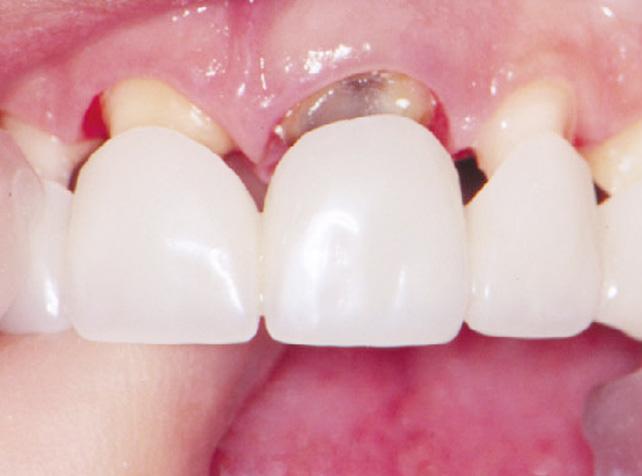Aftercare for Dental Crowns and Bridges: Keeping Your Smile Bright

Dental crowns and bridges are effective solutions for restoring damaged teeth and replacing missing ones. These dental restorations can enhance your smile's appearance and improve functionality. However, proper aftercare is crucial to ensure their longevity and maintain optimal oral health. In this article, we will explore essential aftercare tips for Dental Crowns and Bridges in Dubai to keep your smile bright and healthy.
Understanding Dental Crowns and Bridges:
Before diving into aftercare, it’s essential to understand what dental crowns and bridges are.
-
Dental Crowns: These are custom-made caps placed over a tooth to restore its shape, size, strength, and appearance. They are commonly used for teeth that are severely worn down, damaged or have undergone root canal treatment.
-
Dental Bridges: Bridges are used to replace one or more missing teeth. They consist of one or more crowns on either side of the gap, with false teeth (pontics) in between. Bridges help maintain the shape of your face and alleviate stress on your bite.
Understanding these restorations will help you appreciate the importance of aftercare in preserving their functionality and aesthetics.
Immediate Aftercare Post-Procedure:
After receiving dental crowns or bridges, it's common to experience some discomfort or sensitivity. Here are immediate aftercare steps to follow:
-
Follow Your Dentist's Instructions: Your dentist will provide specific aftercare instructions tailored to your situation. It's crucial to adhere to these guidelines for the best results.
-
Manage Discomfort: Over-the-counter pain relief medications can help manage discomfort. If the pain persists or worsens, contact your dentist for advice.
-
Avoid Hard Foods: In the first few days after the procedure, avoid hard, crunchy, or sticky foods. These can put undue pressure on the new crowns or bridges and may cause discomfort.
-
Maintain Good Oral Hygiene: Gently brush and floss around the crowns and bridges. Use a soft-bristled toothbrush to avoid irritation, and consider using an antimicrobial mouthwash to reduce bacteria.
Long-Term Care for Dental Crowns:
To ensure the longevity of dental crowns, follow these long-term care tips:
-
Regular Dental Check-ups: Schedule routine dental check-ups every six months. Your dentist will monitor the condition of your crowns and surrounding teeth and perform professional cleanings.
-
Practice Good Oral Hygiene: Brush your teeth at least twice a day and floss daily. Pay special attention to the gum line around the crowns, as plaque buildup can lead to gum disease.
-
Use Non-Abrasive Toothpaste: Opt for a non-abrasive toothpaste to prevent scratching the surface of your crowns. This helps maintain their shine and appearance.
-
Avoid Teeth Grinding: If you have a habit of grinding your teeth (bruxism), consider using a mouthguard at night to protect your crowns from excessive wear.
-
Limit Staining Foods and Drinks: Crowns can stain over time, especially if you consume beverages like coffee, tea, red wine, or foods with strong pigments. Limit these to maintain your crowns' color.
Long-Term Care for Dental Bridges:
Maintaining a dental bridge requires attention to detail to ensure the health of your remaining natural teeth. Here are essential care tips:
-
Keep the Area Clean: Use a floss threader or interdental brush to clean between the crowns and the pontic. This area is prone to plaque buildup, which can lead to gum disease and decay.
-
Avoid Chewing Hard Objects: Just like with crowns, avoid chewing on hard objects like ice or pens. These can damage your bridge or loosen the crowns.
-
Use a Soft-Bristled Toothbrush: A soft-bristled toothbrush can help clean your teeth without damaging the bridge or your natural teeth.
-
Maintain a Healthy Diet: A balanced diet rich in fruits, vegetables, and dairy products can promote oral health. Avoid sugary snacks that can contribute to decay.
-
Seek Prompt Care for Issues: If you notice any changes in your bridge, such as loosening, discomfort, or visible damage, contact your dentist immediately. Early intervention can prevent more significant problems.
Signs of Trouble to Watch For:
Both crowns and bridges can develop issues over time. Be vigilant and seek professional help if you notice any of the following signs:
-
Sensitivity: Increased sensitivity to hot or cold temperatures may indicate a problem with your crown or bridge.
-
Discoloration: Noticeable changes in color or darkening around the edges may signal underlying issues.
-
Loose Crowns or Bridges: If you feel movement or instability, it’s essential to see your dentist promptly.
-
Pain or Discomfort: Ongoing pain or discomfort should not be ignored, as it may indicate infection or other complications.
The Importance of Professional Cleanings:
Regular professional cleanings are vital for maintaining oral health and ensuring the longevity of dental crowns and bridges. During these visits, your dentist or hygienist can remove tartar buildup that regular brushing and flossing may miss, ensuring that both the restorations and surrounding teeth remain healthy.
Conclusion:
Caring for your dental crowns and bridges is crucial for maintaining your smile and oral health. By following these aftercare tips and staying vigilant for potential issues, you can enjoy the benefits of your dental restorations for many years. Always remember to maintain open communication with your dentist and attend regular check-ups to ensure that your smile remains bright and beautiful. With proper care, dental crowns and bridges can enhance not only your appearance but also your overall quality of life.
- Art
- Causes
- Crafts
- Dance
- Drinks
- Film
- Fitness
- Food
- Games
- Gardening
- Health
- Home
- Literature
- Music
- Networking
- Other
- Party
- Religion
- Shopping
- Sports
- Theater
- Wellness
- IT, Cloud, Software and Technology


